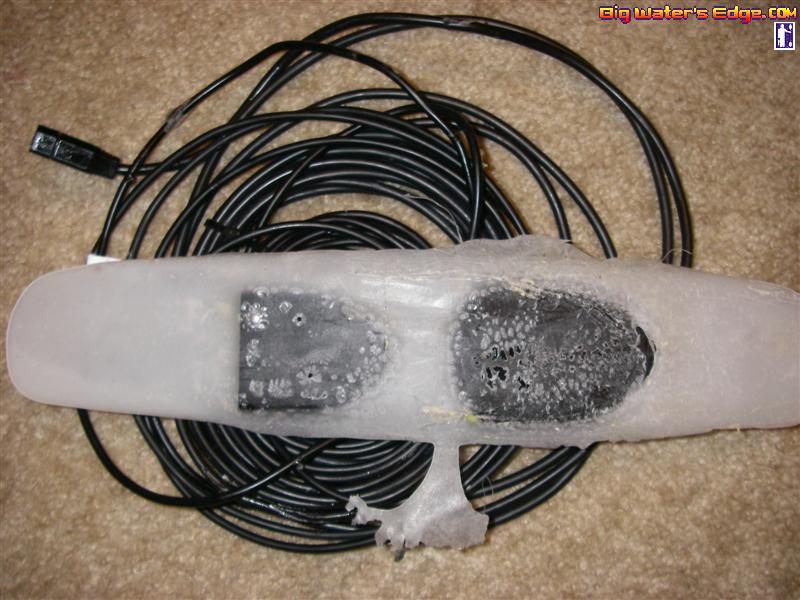
 |
|
|
#1 |
|
Senior Member
Join Date: Sep 2006
Location: Bay Ho
Posts: 1,382
|
Transducer Surprise
I tried to be as careful as possible laying the puck into the small puddle of goop, and allowed it to dry in place for 24 hours. I wish there was a better way to mount the puck for a clear picture. -It seemed to locate bait, structure, and depth ok to about 150 ft., but I would bet I missed a lot more important info. This is how it looked from the top as I removed it.  This was the bottom side..   
|
|
|

|
|
|
#2 |
|
Administrator
Join Date: Mar 2005
Location: 1-2 miles off the point
Posts: 6,948
|
next time put the Goop on the transducer not on the kayak surface. The flat Hummingbird ones are a little trickeir than the Eagle/Cuda Lowrance ones.
__________________
 
|
|
|

|
|
|
#3 |
|
Junior
Join Date: Sep 2008
Location: San Clemente, Ca.
Posts: 16
|
I had the same problem and wound up returning 2 units to West Marine (no questions asked on the returns). I only returned the unit the first time, after the second I removed the transducer and had the same issues with the bubbles. The directions for Hummingbird say to use ONLY 2 part epoxy and not Goop, silicone or 5 minute epoxy because of the possibility of bubbles forming over time. I should have read the directions from the beginning.
|
|
|

|
|
|
#4 |
|
I eats what I kills
Join Date: Apr 2008
Location: San Diego
Posts: 393
|
The quicker a cure, the more chance for bubbles due to out gassing.
I would think RTV would not have that issue. I don't ever recall seeing bubbles in RTV "formagasket" automotive products.
__________________
Please release bill-fish. |
|
|

|
|
|
#5 |
|
Guerro Grande
Join Date: Jan 2006
Location: Houston, TX
Posts: 629
|
Goop also forms bubbles when you move it. Try to put it on in one smooth movement and then don't touch it until it cures.
I had one that bubbled like that, but I was still able to get good bottom returns at more than 600' I don't think the bubbles matter that much unless the Goop layer is really thick. I always press the transducer down so there is very little Goop under it. I put a thick layer of Goop up the sides and over the top edge to get a good hold on the transducer.  I'm not convinced that all the bubbles came from the curing. With such a thin layer of Goop, it is possible that some of this happened when they were pried up.
__________________
Douglas Gaxiola  Team No Fish- Amateur Staff Team No Fish- Amateur Staff |
|
|

|
|
|
#6 |
|
Senior Member
Join Date: May 2006
Location: C-bad
Posts: 431
|
I had that problem with my xtreme. The layer of foam on the inside reacted with the goop and always causing the same bubbles you have pictured. I had to grind down a 4" X 4" area to the kayak material, than attach my transducer.
|
|
|

|
|
|
#7 |
|
Junior Member
Join Date: Nov 2008
Posts: 7
|
I recently installed my transducer and did it with a Gladware plastic container. I did cut the botom of the container, siliconed it to the bottom of the kayak so that it would align with the transducer when lowered (it is mounted on the sail mast, Hobie Adventure). I made a hole on the lid and put together the transducer mount and the lid so the lid is "trapped" along with the transducer. Also made a few drilled (very small draining) holes on the edges of the lid. I put water before launching. When I store my kayak, it drains inside and I sponge it out at home.
|
|
|

|
 |
| Thread Tools | |
| Display Modes | |
|
|